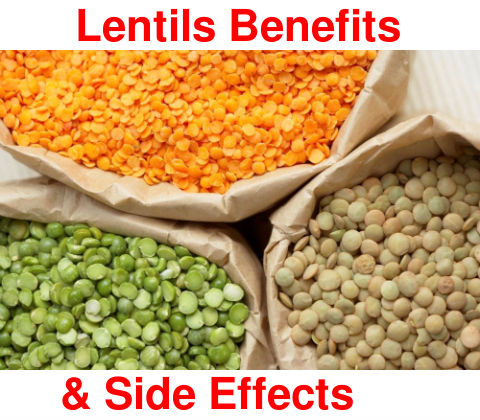How to Cook Lentils

It is surprising that in our modern world, the lentils culture has become exotic as they had been replaced by other products.
Today leaders in the production of lentils are North Africa, southern Europe and India. Nearly every warm country can cultivate lentils in a large scale.
Species Of Cultivated Lentils
Lentils belong to the bean family. There are several types of lentils; we shall make mention of the four most common species.
Brown lentils are the most widespread in the world and are used mostly for soups.
Red lentils. These are also called, Egyptian lentils, and come with the husk removed. They cook quickly and are generally used in preparing mashed potatoes, vegetable stews or thick soups. This variety goes well with all kinds of spices.
Green lentils, also known as French, are unripe beans and are most often used in salads.
Black lentils. They are the smallest, take the longest time to cook of the varieties and are popular in the Middle East. They are good for the health due to their excellent protein quality.

How To Cook Lentils
In cooking lentils, you should check the water often and if necessary, add more boiling water, as they have a high liquid absorbency. Dip the washed lentils in boiling water and cook over medium heat 10-40 minutes, depending on the type of lentils used. Red lentils will be ready in 10 minutes, black lentils cooking time can take up to 20 minutes. Green lentils require 30 minutes cooking time and brown lentils will be ready in 40 minutes (brown lentils require presoaking in water anywhere from half an hour to two hours). Add salt to the lentils at the end of cooking. Cook lentils covered with a lid and stir periodically..
Health Benefits Of Lentils
- The protein found in lentils is perfectly digested by the body.
- Experts say that the lentil is beneficial because of the isoflavones contained in it. Those compounds are able to suppress the development of cancerous tumors. It is especially important that they are fully preserved in both the canned and dried beans.
- It is interesting that lentils contain folic acid (which is needed by humans), far more than any other plant product.
- The lentil is the leader among all legumes in its iron content. It’s also rich in vitamin B1 and essential amino acids.
- The lentil is good against digestive disorders, it normalizes blood sugar levels (which is why it’s so recommended for diabetics).
- A distinctive feature of the lentil is that it does not accumulate toxins and radionuclides – even when grown in polluted areas! For this reason, the lentil is always boldly hailed as an environmentally friendly product.
Lentils Side Effects
Lentils, like almost all the legumes, have a number of negative features.
- They can significantly overload the digestive tract, thus causing excessive flatulence.
- For people who suffer from peptic ulcer disease and dysbiosis, lentils are contraindicated, since in those types of diseases lentils are very poorly digested in the stomach.
- Lentils can have a negative effect on the gall bladder and kidneys, as they may contribute to stone formation. This is why lentils are contraindicated for people suffering from biliary dyskinesia.
Calories In Lentils
Lentils caloric value is 295 kcal. The nutritional value of lentils is as follows: protein – 24 g, fat – 1.5 g, carbohydrates – 46.3 g.
Conclusion
Generally speaking, the lentil is quite positive food and eating them are good for the health. Among general recommendations for the consumption of lentils – it’s not advised to eat them more than twice a week. In any case, in order to get the benefits of lentils, but not the harm, it’s especially important to observe moderation and listen carefully to important recommendations by your doctor.